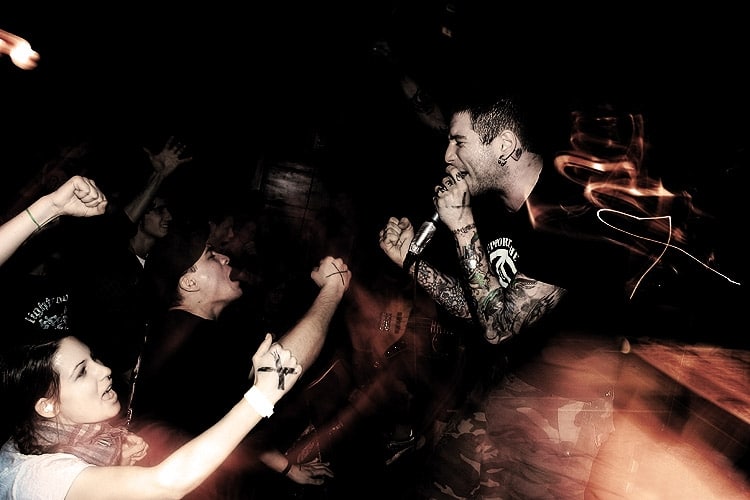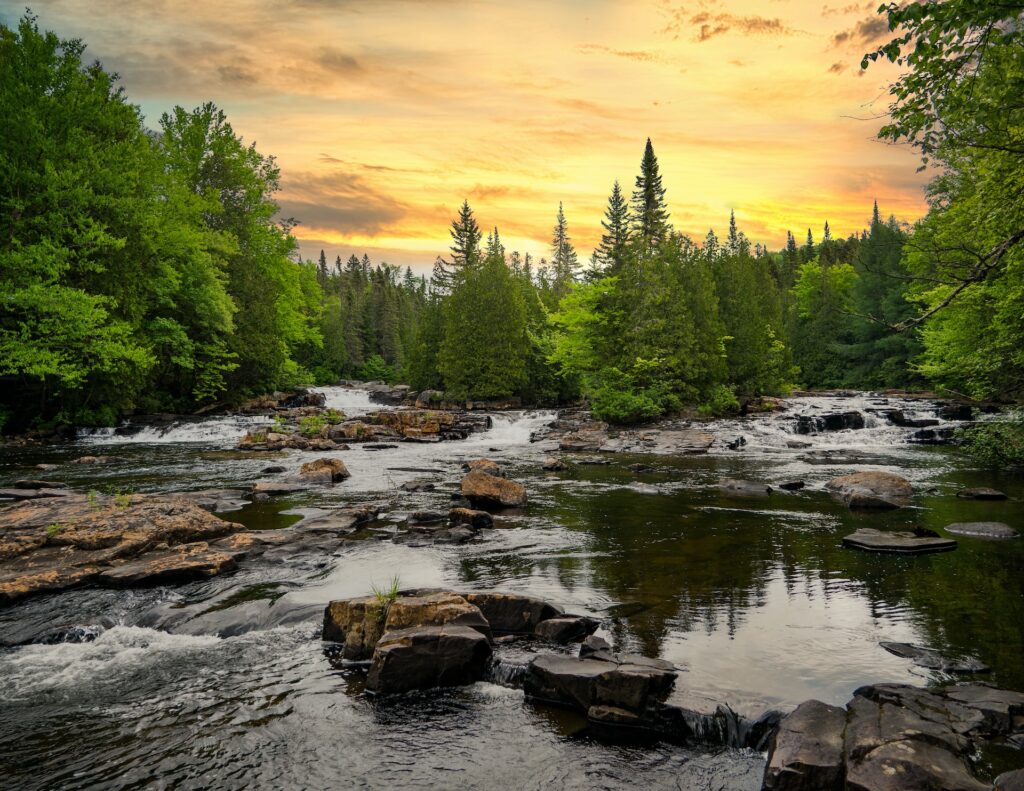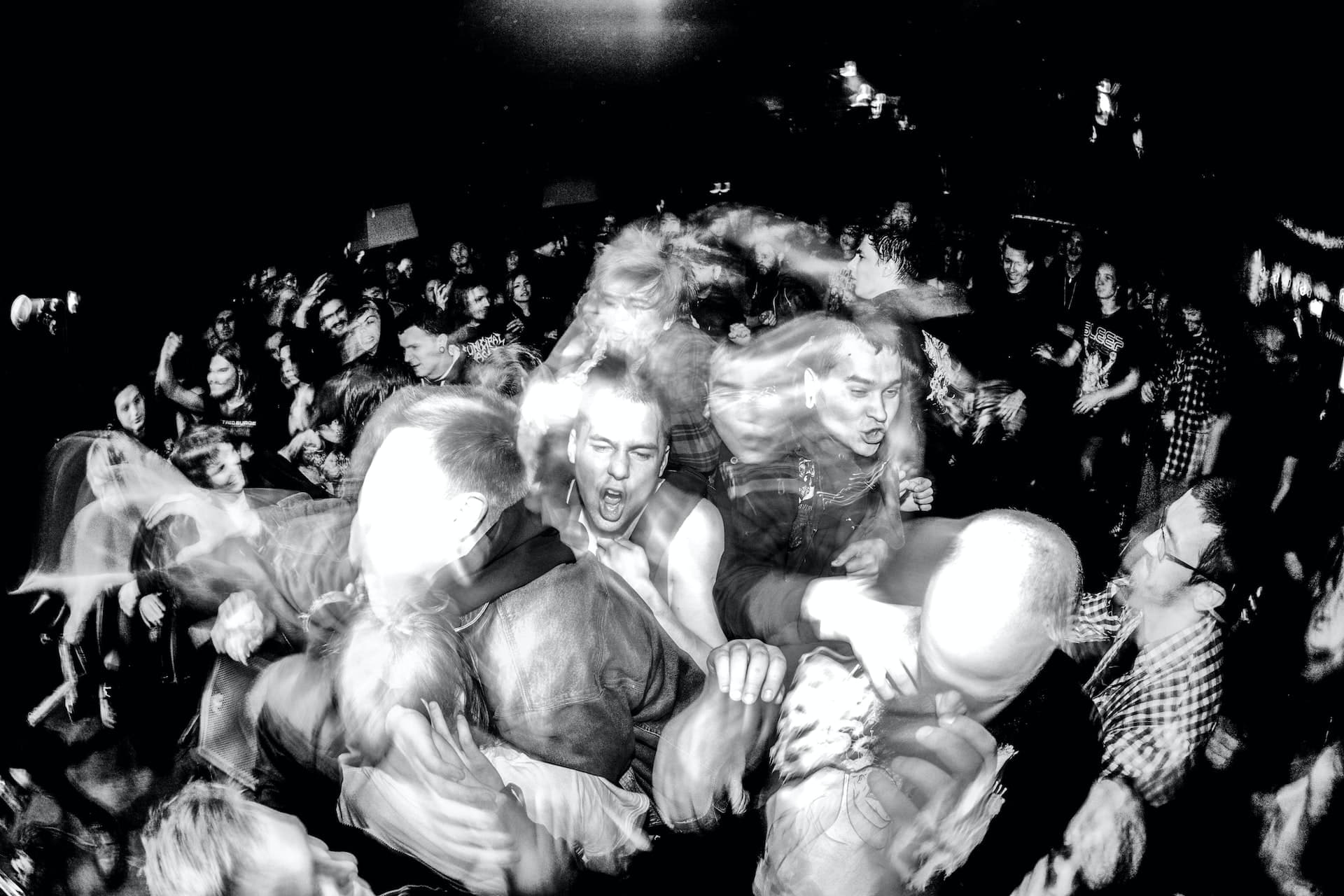The lyrics are from the song Out of Step, an unintentional cultural manifesto barked out over a loping, jangly, punk-guitar riff. It’s not high-art. It is a ferocious articulation of the absurdities of mainstream adolescent rebellion.
And as a 15 year-old skate rat in 1989, it felt like truth:
I don’t smoke.
I don’t drink.
I don’t fuck.
At least I can fucking think.
Ian MacKaye, Minor Threat
It still feels like truth.
Ian MacKaye is a punk icon who’s work with Minor Threat and later Fugazi laid the ethical foundations for my eventual investment in Islam. Through his words, principled activism, and fiercely independent approach to making music, I learned to look past appearances and became almost irrationally suspicious of centralized power.
His music, personality, and politics inaugurated the straight edge movement, a subculture within hardcore punk circles whose adherents eschewed smoking, drinking, and promiscuous sex. In short, it was a culture of self-criticism wherein participants were actively questioning and discarding the excesses of mainstream punk culture where youth “rebellion” was increasingly linked to behaviors that were intrinsically harmful to person and community.

The mark of a straight edge punk was an X across the back of the hand. Underage attendees at punk rock clubs had their hands marked by staff with an X to signify they were too young to purchase alcohol. The mark caught on and became symbolic of an active rejection of liquor or any other intoxicating substance.
The straight edge X lives on in the Dust and Tribe rune:

The straight edge movement evolved. Many straight edge punks embraced veganism and passionate animal-rights activism. Straight edge punks became increasingly militant in some circles with violence regularly demonstrated toward those who did not share in their abstinence.
In the early stages of straight edge, its philosophy was to rebel through self-control. With the ability to control one’s actions, a straight edge participant would be better suited to stand up against the mainstream. The first wave of straight edge did not impose rules on others, rather participants chose to follow the ways of self-control. With the second wave of straight edge these rules were used to control others. Additionally, the second wave experienced a change in music style. Where the first wave was influenced by hardcore punk, the second wave brought in aspects of heavy metal music which further pushed for power and control over others. The slowing down of the music reflected the focus of individuals in their journey to self control.
https://en.wikipedia.org/wiki/Straight_edge
What was missing from straight edge culture, then and now, is an overarching narrative. This vacuum was manipulated by a number of ideologues to generate the various (and often oppressive) manifestations of straight edge ethics.
Ian MacKaye has said in several interviews that he had no intention of creating a movement. He chose to live a certain way and to express those choices through his music. He wanted no part in shaping the choices of others.
Those of us who identified with his experience were left to either attach ourselves to charismatic personalities within the scene, or else construct our own narratives around the choice to remain abstinent. For some, that narrative was political. For some it was philosophical. And for others it was spiritual with many among the straight-edge movement embracing eastern religions.
Krishnacore is perhaps the most obvious example of this:
Although the Hare Krishna movement and many straight edgers shared the principles of refraining from drug use, vegetarianism and condemnation of illicit sex, the former also provided a transcendental and philosophical framework wherein lay these commitments.
https://en.wikipedia.org/wiki/Krishnacore
Islam, widely misunderstood and actively vilified by mainstream media bias, is particularly compelling for straight edge punks with its clear-cut, no-nonsense articulations of a behavioral code and its perpetual opposition to the status quo. And for Sean Muttaqi of Vegan Reich, Islam was absolutely on the table as a moral, ethical, and philosophical framework with a rich history and mythology that met the requirements we all have to be linked not only by shared ideas, but also through a shared story.
All of this is at the core of Dust and Tribe.

We are a community invested in our identity as Muslims, celebrating our culture of abstinence, suspicious of power and corporate influence, and working to build on our shared history through gatherings that strengthen bonds and create memories.
We are children of the West, informed by the cultural realities of the communities we find ourselves in. We didn’t grow up with Eid as a national holiday. We didn’t grow up with the call to prayer reverberating throughout our cities.
We grew up on skateboards listening to music that our parents were afraid of. We didn’t fit in anywhere. Mainstream culture made fun of us and our families prayed for our salvation.
The convergence of rejection and supplication drove us outside.
And from here, we call to others.

Another very well written piece Ahmed. I remember delving into punk rock in the early 1980’s when a co-worker at Magic Pan restaurant in New Orleans introduced me to “the Clash”. Their music became mainstream later with songs like “Rock the Casbah”. Like you, Punk rock for me also was an outlet of expression which helped me explore spaces and approaches outside the dominant culture. I really liked the political edge in the music, and the importance of the lyrics. For example in a speech class, I talked about another song by the Clash “Know your rights, all 3 of them”. In some of the songs, the Clash (band from UK), mixed Spanish lyrics, like in the song “Spanish Bombs”. This multi-cultural approach was very rare in those days.
Moving from New Orleans to Los Angeles in late 1980’s, it seemed like gradually Punk Rock became more influential and moved into the mainstream. Mohawk type haircuts, hydrogen peroxide streaks in hair, sleeveless T-shirts and ear piercing became more common and then fashionable. Vietnam was fresh in the minds of Californians, so the mistrust in government and anti-war sentiments were still felt in the local culture. One demonstration of this was a bumper sticker a classmate displayed, “Question Authority”. Those were the good old days. Especially after 9/11, the masses became increasingly docile, passive, apathetic and a-political. (Foucault talks about Disciplinarity and Docile bodies). In a complacent and obedient society, powerful, political and empowering music with balls, seems very rare now. And its impact is painfully missed.
In the early 1980’s, on WTUL, an ad-free college radio of Tulane University in New Orleans, they started playing rap music with Run DMC’s, “You Be illin'”. It took 6 or 7 years for this genre to become mainstream. But the beginnings of rap music was passionate, heartfelt and powerful statements from the grassroots, on the status quo of America, including social issues, political impacts on daily life, racism, poverty, inequities, etc. It is a tragedy that rap and hip-hop mostly devolved into glorification of gangs, crime, narcissism, showing off, competition, violence, guns, drugs, pimps and “ho’s”.
In retrospect, the Punk rock I was exposed to was political, leftist music predominantly from White musicians. Which later influenced the birth of a new genre of Music of the 1980’s, called “New Wave”. Today, Punk rock is no longer significantly popular. The other genre which started becoming popular also from the 1980’s, rap / hip-hop, has been mostly music made by Black people. It has become mainstream and seems to be mostly serving the purpose of entertainment (and glamorizing the prison industrial complex). It rarely seems to make any meaningful statements, like it used to, 30 years ago. For example, Ice-T who used to sing about police brutality in 1992, now seems to be promoting thug life? Rap / Hip Hop misses countless opportunities to incorporate social and political content into the music. For example, among my frequent sources of inspirations are amazing Black authors and researches like Joy DeGruy, Cornell West, Alice Walker, and Black Panthers like professor Angela Davis of UC Santa Cruz. Resmaa Menakem’s powerful line “Black bodies are not defective” can easily be incorporated in a good rap song. But even popular musicians with millions in resources, rarely employ, or get inspired by, or incorporate the work of famous Black (and other) researchers and authors. When uplifting and empowering ideas are incorporated in music, it ripples and has a moving effect which resonates and reverberates in the heart of society. For example the work of the rap artist “Immortal Technique” is a breath of fresh air. It can be said that a band like “Rage Against the Machine”, draws from the elements of Punk Rock and Hip Hop. That amazing band is also painfully missed (since it broke up a few years ago). It was the voice of for example, social justice and the anti-war movement. Thank God for Music. In Urdu there’s a saying: Music is Nourishment for the Soul. In addition, when music also packs a punch, it can not only move the body to dance, it can also empower a person with constructive energy, and can light up a community to impact positive movements. In the meantime, music helps us relax and chill out
This is the comment I was hoping for, brother!
As I was writing the post, I was thinking about the influence that early hip-hop and even contemporary “conscious” urban music had and continues to have among certain demographics, but other people have told that story far better than I could (there is a whole Wikipedia entry on “Islam and Hip Hop” with TONS of references). Even so, it deserves some acknowledgement here and I was very hopeful that someone out there would drop a comment. Thank you for delivering!
So, to recap:
Couches are distracting.
F-bombing punk rockers, on the other hand, are inspiring.
I’m a need a moment.
If they were LOUNGING and cussing, they would be far less inspiring : )
Miss you my brother. Occasionally check in here to see where life is taking you and to be vicariously inspired.
The next time I’m in LA let’s go see Sammy.. An old friend o\f mine, drummer extraordinaire and one of the founding members of Youth Of Today, Judge, Gorilla Biscuits and some of the other iconic straight edge bands from the 80s. Dude was playing matinee shows at CBGBs at age 12. I think you’ll both get a kick out of meeting each other. Would love to share that with you.
Please keep me in your prayers. Much love to you always.
-S
So good to hear from you, Shahid! We’re now up north in a town called Placerville, but would absolutely make the trip to connect with you and Sammy if at all possible. He sounds like the kind of living history we should all seek out and learn from while we have the chance.
In the meantime, we’re not far from Sacramento. We would be honored to host you in the Eldorado Forest, insha Allah!
Very nice read and a brilliant example that our journey into Islam doesn’t always have to be from the door or piety. Many of my peers journey into Islam (including myself) came from pop culture references in the 1990’s when certain elements of Islam enjoyed a popularity in the urban sub-culture (think “Malcolm X” movie, conscious hip-hop like Public Enemy and Ice Cube, the Million Man March, Mike Tyson, etc.). As a second generation immigrant Muslim living in Southern California, Islam’s acceptance in urban American circles gave me the confidence and pride to be both Muslim and American. Eventually I started to study the faith on a deeper level and committing myself to the practice (al’hamdulillah), and of course Allah is the one who guides, but I can’t help but wonder how much pop culture played a role in that transformation.
“Islam’s acceptance in urban American circles gave me the confidence and pride to be both Muslim and American.”
What a fantastic summary of this post, masha Allah! I could have saved A LOT of time coming up with that sentence : )